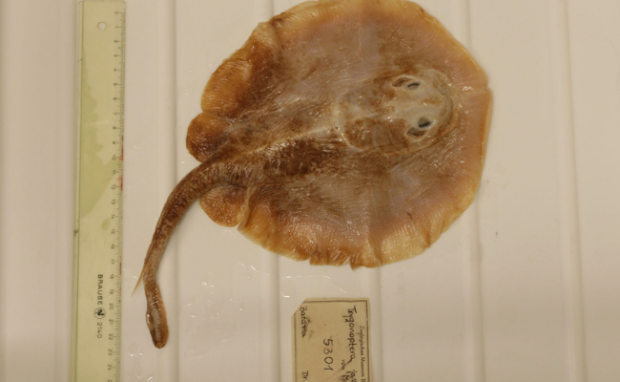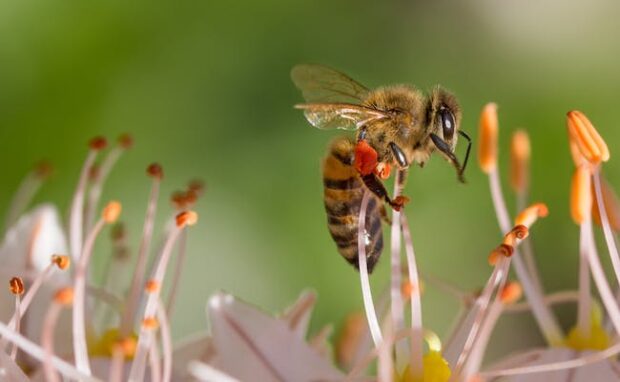Fish extinction declared first caused by humans
The International Union for Conservation of Nature reported the first fish to go extinct due to human activity. The Java Stingaree population has disappeared due to overfishing since the 1870s. Moreover, extensive industrialization destroyed its habitat, driving its extinction further.
It is not easy to recognize how our lives impact our environment. After all, does it truly harm the world if we drink from plastic straws or throw garbage everywhere? Yet, the first-ever fish extinction shows that our recklessness could eliminate animals. If we don’t do something soon, we may inflict irreversible environmental damage.
This article will elaborate on the first fish extinction caused by humans. Later, I will explain other ways manmade climate change is affecting plants and animals worldwide.
How did this fish extinction occur?

“Intensive and generally unregulated fishing is likely the major threat resulting in the depletion of the Java Stingaree population, with coastal fish catches in the Java Sea already declining by the 1870s,” said Charles Darwin University conservation biologist Julia Constance.
“The northern coast of Java, particularly Jakarta Bay, where the species was known to occur, is also heavily industrialized, with extensive, long-term habitat loss and degradation. These impacts were severe enough to unfortunately cause the extinction of this species.”
In 1862, experts first recorded the first Java Stingaree specimen. Despite extensive market monitoring, survey efforts have not found any hints of this species.
ScienceAlert says industries benefiting from these practices have faced accusations of not providing enough information. Similar situations worldwide have endangered marine life worldwide.
For example, massive fish populations have died in Australia’s outback rivers, Thai beaches, and US lakes. We may attribute these events to extreme weather events.
You may also like: Prague zoo takes in rare wild horse species
However, human activity has been ramping up global warming, exacerbating such threats. Also, we’ve added many pollutants and taken so much water from animals.
Some of the affected creatures include the highly prized Atlantic Salmon. “This is yet another wake-up call to our decision makers that large-scale nature restoration cannot wait any longer,” urges Claire Baffert, Senior Water Policy Officer at WWF’s European Policy Office.
“To keep this extinction crisis at bay, EU institutions must adopt the long-awaited Nature Restoration Law, which includes a target to restore 25,000 kilometers of free-flowing rivers – vital for salmon and other migratory fish.”
Other pollution trends

Another disturbing trend involves flowers shifting towards self-pollination. Fewer animals spread their pollen, prompting these flora to reproduce without them.
The French National Center for Scientific Research (CNRS) and the University of Montpellier concluded that when they studied modern field pansies and older ones. “Population genetics analysis reveals a 27 percent increase in realized selfing rates in the field during this period,” the researchers said.
It may seem like no problem because they can still reproduce with self-pollination. The scientists discovered that newer ones are less diverse than older ones. Consequently, the flowers become more susceptible to environmental changes, making them more likely to go extinct.
“We documented trait evolution towards smaller and less conspicuous corollas, reduced nectar production, and reduced attractiveness to bumblebees, with these trait shifts convergent across the four studied populations,” the scientists observed.
The flower’s surface became 10% smaller, making them less attractive to insects. Consequently, they get fewer pollination visits, reducing the need to produce nectar and make themselves attractive.
“This study demonstrates that plant mating systems can evolve rapidly in natural populations in the face of ongoing environmental changes,” write the researchers.
You may also like: Indonesian zoo breeds Komodo dragons to save them
“The rapid evolution towards a selfing syndrome may, in turn, further accelerate pollinator declines, in an eco-evolutionary feedback loop with broader implications to natural ecosystems.”
As climate change worsens, it perpetuates a vicious cycle of declining insect and flower populations. Soon, it could cause worldwide hunger.
Our food supply relies on pollination. We need bees, butterflies, and other insects to help flowers to produce fruits and vegetables. If they disappear, many of our food staples may join them.
Conclusion
Scientists recorded the first marine animal to die from human activity: the freshwater fish, the Java Stingaree. They say rampant industrialization and overfishing have eliminated this species.
“These diverse species are integral to the ecosystem and vital to its resilience. This is essential to the billions of people who rely upon freshwater ecosystems and the millions of people who rely on their fisheries,” says Kathy Hughes, Co-Chair of the IUCN SSC Freshwater Fish Specialist Group.
Learn more about the growing list of endangered animals on the International Union for Conservation of Nature website. Also, check out more digital tips and trends at Inquirer Tech.